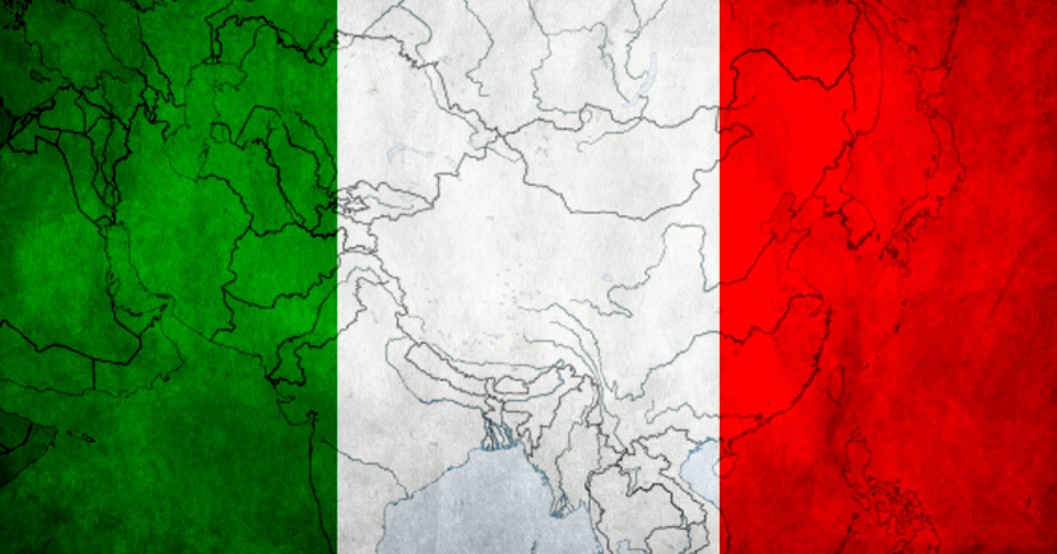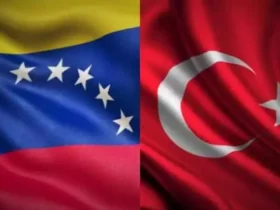Italy under the ‘sovereigntist’ Meloni has followed through on what had already been announced, as well as widely anticipated, and has notified China of its withdrawal from the Silk Road. In this regard, as reported by the media, the Italian government has delivered an official note to China to communicate the intention to exit the agreement. The move was preceded by a mission to China by the Secretary General of the Ministry of Foreign Affairs, Riccardo Guariglia, in the summer, followed by the visit of the Minister of Foreign Affairs, Antonio Tajani: meetings in which the intention to continue the strategic partnership between the two countries was confirmed, and preparatory steps were taken for the visit of the Head of State Sergio Mattarella to China next year.
The Foreign Minister and Vice President of the Council, Antonio Tajani, intervened on the matter himself, stating at the Adnkronos forum that “the Silk Road is not our priority; we have seen that the Silk Road has not produced the expected effects, on the contrary. Those who are not part of the Silk Road path have achieved better results.”
That said, Tajani adds, “non-participation in the Silk Road does not mean that it is a negative action towards China; it means being able to continue to have excellent relations and work intensively on commercial aspects to strengthen our presence in the market. We have already convened the Italy-China intergovernmental meeting in Verona to address all international trade issues. There continue to be excellent relations and connections, despite being a country that is also our global competitor.”
A significant setback for Italy
Does Tajani’s statement reflect the truth, or is it merely an attempt to justify a decision imposed by Washington on a vassal state like Italy?
The Silk Road, an ancient network of trade routes connecting the East and the West, has been revitalized in recent years through the Belt and Road Initiative. Italy’s participation in this initiative, implemented by the Conte government, would have brought numerous advantages to the country.
Firstly, joining the Silk Road would have provided immense economic benefits for Italy. As an active member, the country could have gained better access to numerous markets in Asia, the Middle East, and other parts of the world, creating new opportunities for Italian businesses to expand their reach and establish commercial ties with a wide range of partners. Additionally, Italy’s strategic position in the Mediterranean makes it an ideal gateway for goods flowing from Asia to Europe, facilitating the transport and distribution of goods across the continent.
Being part of the Silk Road initiative would have led to an increase in Foreign Direct Investments (FDI) in Italy. The initiative promotes cooperation and investments among participating countries, encouraging the creation of joint ventures and partnerships. This influx of foreign direct investments could not only stimulate economic growth but also create job opportunities for Italians. Furthermore, it could encourage the transfer of technology and expertise, contributing to improving Italy’s competitiveness in various sectors and industries.
Another advantage of joining the Silk Road is the cultural and tourism exchange opportunities it offers. Italy is already a popular tourist destination due to its rich history, art, and culinary traditions. By actively participating in the Silk Road, Italy could attract even more visitors from countries along the route. This increase in tourism could not only boost the Italian economy but also foster cultural exchange and understanding among diverse nations.
Moreover, the Chinese initiative, the Silk Road, places a strong emphasis on infrastructure development. Italy’s participation in the initiative involved the construction and modernization of key logistical and transportation networks, such as ports, railways, and highways. This would have significantly enhanced Italy’s internal connectivity, making it an attractive destination for global trade and investments. Infrastructure development, in turn, has ripple effects on other sectors, such as manufacturing and logistics, further strengthening Italy’s overall competitiveness.
Finally, joining the Silk Road could have contributed to strengthening diplomatic relations between Italy, China, and other participating countries. By actively engaging in the initiative, Italy could have bolstered its political and economic cooperation with countries along the route. Such collaboration would not only bring benefits to Italy in terms of trade and investments, but also foster cultural and interpersonal exchanges, promoting mutual understanding and friendship.
In conclusion, the benefits of Italy’s participation in the Silk Road are vast, including economic growth, increased foreign investments, cultural exchanges, tourism opportunities, infrastructure improvement, and enhanced diplomatic relations. Italy, with its rich historical and cultural heritage and strategic position in the center of the Mediterranean, could have derived great advantages from actively participating in this modern Silk Road, connecting with partners worldwide and promoting mutually beneficial cooperation.
Instead, this government of ‘sovereigntists’ made of cardboard has decided to obey yet another diktat from Washington. The renewal or not of the memorandum on the New Silk Road is a sovereign decision of the Italian government. This was stated by the Coordinator for Strategic Communications of the National Security Council of the United States, John Kirby, during a press briefing. “That said, it is clear that more and more countries are realizing the risks and lack of concrete benefits associated with a partnership with China under that model: the United States, within the G7, has proposed an alternative represented by the Partnership for Global Infrastructure and Investment (PGII).”
Said and done. Therefore, just like in the case of weapons and economic aid to the dying regime in Kiev, just as in the case of masochistic sanctions against Russia, Giorgia Meloni, like any government led by the PD or technocratic leadership like Mario Draghi’s, has decided to sacrifice national interests and those of the Italian people on the altar of Washington’s interests.
















Leave a Reply